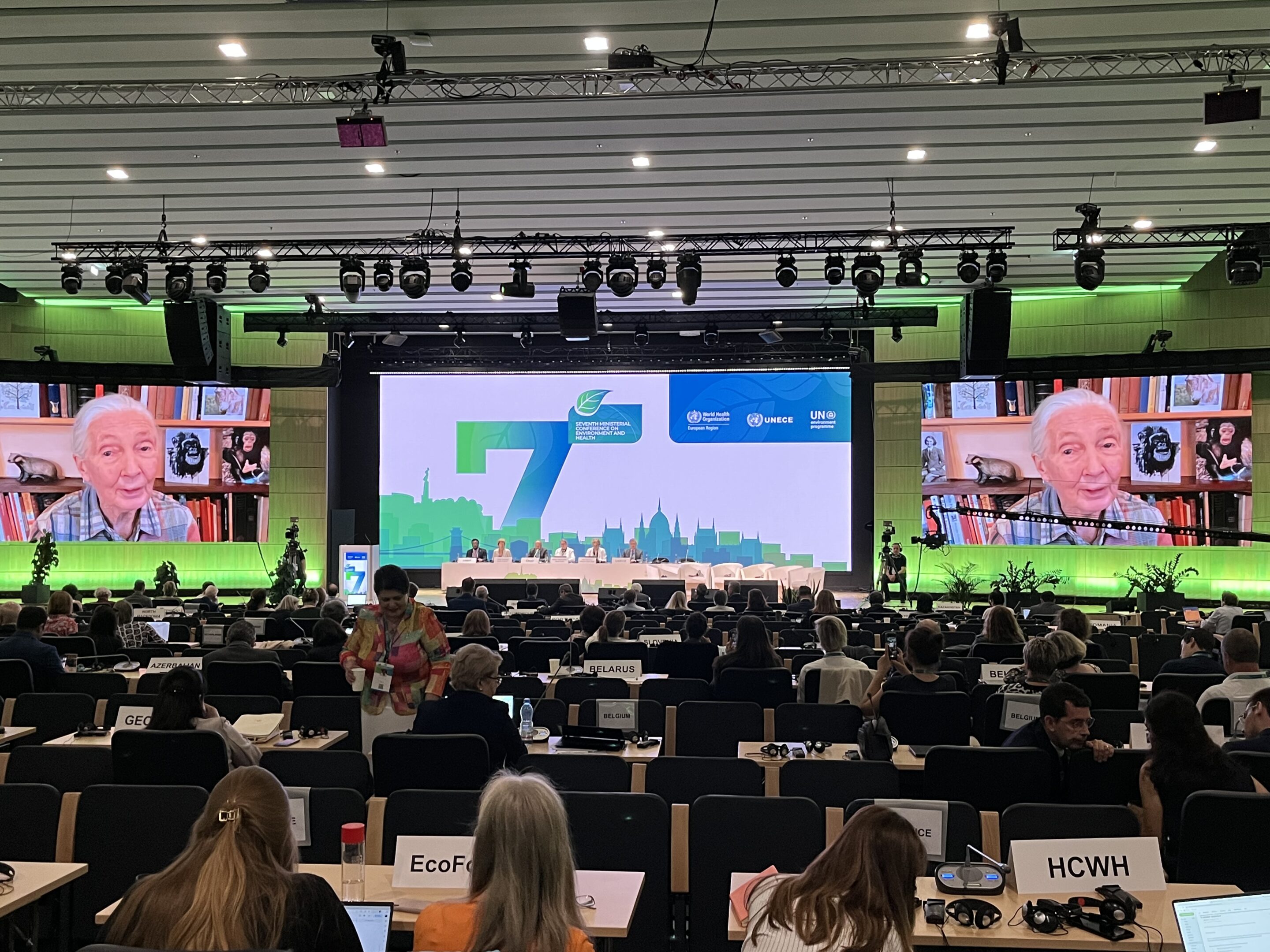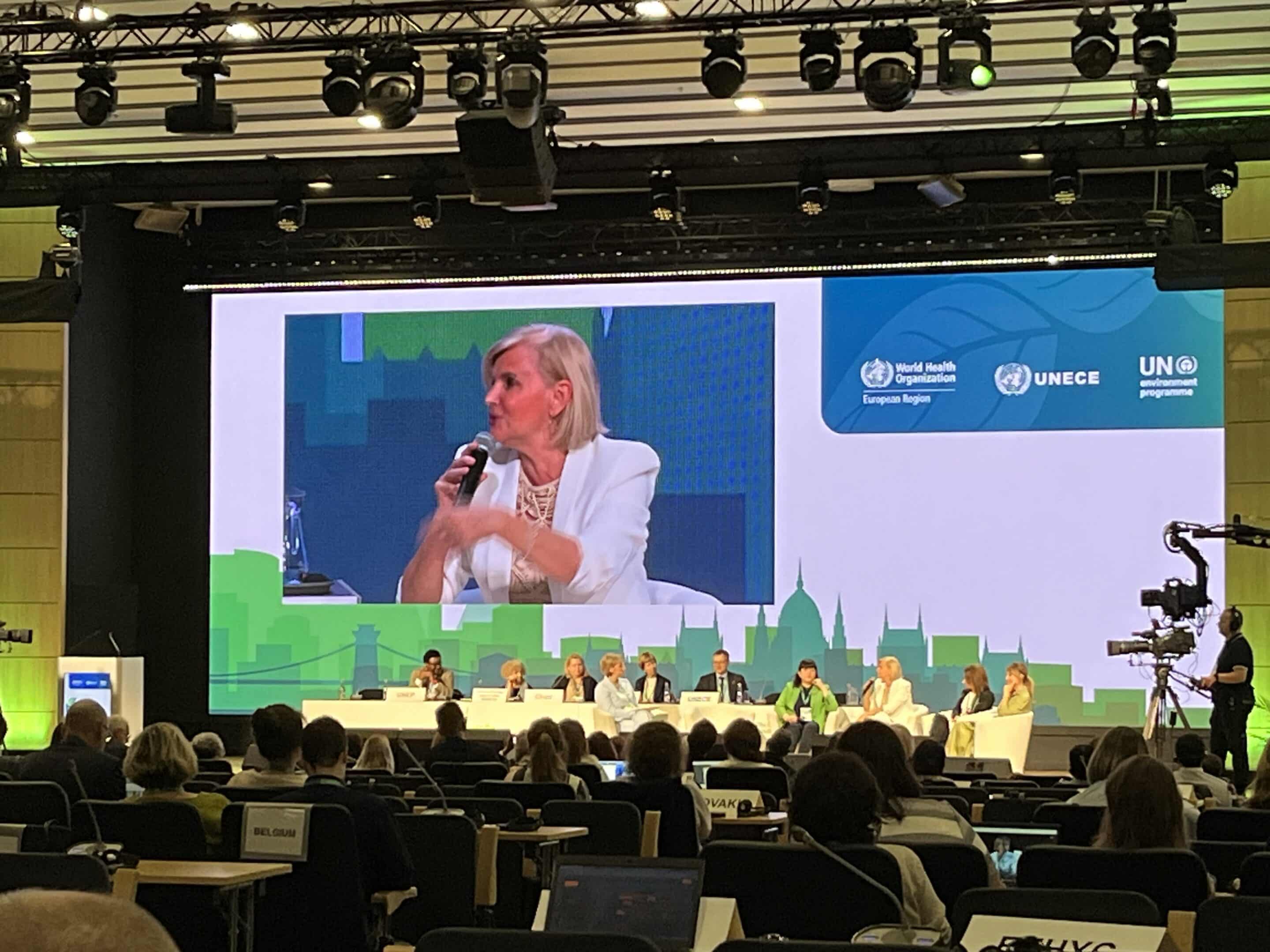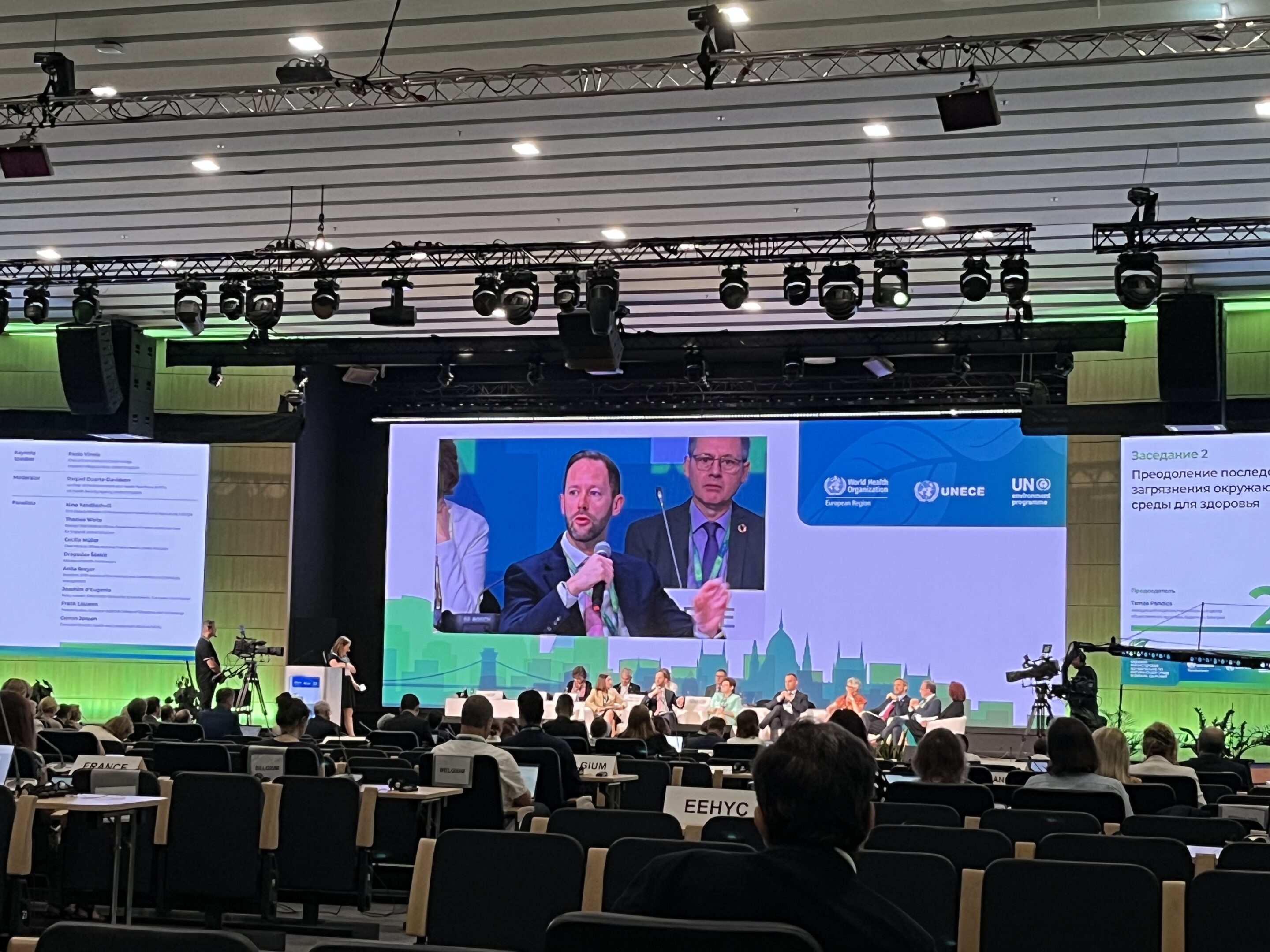The attendees stand milling around in the bright hall, waiting in coffee lines between plenary sessions. Half of the walls are large glass windows that look over some of the leafier parts of outer Budapest. Speakers on each wall have played bird songs for the attendees, making a pleasant, bright, leafy backdrop for conversations, collaboration and coffee. While people mingle and sip, an unpleasant noise starts, a very quiet humming at first. It goes unnoticed by most in conversation at first. But it comes louder, taking on different tones and rumbling and metallic vibrating. The tones become louder and more intrusive. The bird songs are drowning out. People start to look up in puzzlement, looking around the hall. The developing roar starts to include other noises, high-pitched, very familiar noises, a noise we all recognise: a car horn. Everyone is now starting to realise the sound taking over the hall, pulling people’s attention, interrupting conversations and putting people on edge, is the sound of traffic. People start to wonder if this is a technical fault, as the noise becomes deafening. No one can hear anything else. Then, everyone’s pockets vibrate. The conference app sends everyone a message: “listen and look at the screen. You may experience some bad air quality. Every year, almost 570 000 people die due to ambient air pollution”. The sound wasn’t related to a technical fault, it was related to a societal fault; the massive toll that air pollution puts on the WHO European Region every year. This is part of the triple crises that the 7th WHO Ministerial Conference on Health and Environment (7MCEH) looked to tackle; environmental pollution, along with loss of biodiversity and climate change.
The 7MCEH was held in Budapest, Hungary on July 5 – 7, with the aim of pushing for a unified view of health protection encompassing the health of the environment and planet. Representatives from 48 WHO European Region countries, UN bodies including the WHO, civil society representatives, and youth ambassadors met to look towards a future where the role of preservation of natural systems and environments is seen for its integral role in human civilisation. Without environmental health, there is no human health.
Roaring cars were not the only way that the conference used innovative techniques to tell its messages. The following day, the bird songs were interrupted by the sounds of a severe storm, while the screens around the conference showed footage of black clouds, torrential rain and bursting rivers, telling us all that climate change will result in more violent natural events. To get people to look at the environmental reports for different countries in the European Region, attendees were greeted with a table of cookies with QR codes and the name of a country in the icing on top (Kazakhstan was delicious). One wall was covered in pictures of Hungarian children’s drawings of what “health and environment” meant to them, and on another wall, attendees could add to a massive canvas to bring together the feelings and thoughts from the conference. Side events elected attendees the mayor of a major city, making decisions on how to protect the public during heatwaves. And on the final afternoon, a small group of intrepid clean transport enthusiasts joined a bicycle tour that took us around the more cycle friendly parts of Budapest.
The conference culminated in the signing of the Budapest Declaration with looks to urge regions and countries to take action to prevent a deteriorating triple crisis, and to realise the extent of the damage we do to ourselves by damaging our supporting environment. The conference also launched a number of partnerships to this end, with states, civil society and supranational organisations signing on to collaborate to reduce the effects of the triple crisis.
While it remains to be seen the effect this declaration will have on the international discourse around environmental and health protection and restoration, the themes of divesting in non-renewables, including fossil fuels, decarbonising major systems such as transport and health, focusing on Planetary Health and One Health, as well as an Economy of Wellbeing, and including stakeholders such as young people, in the decision-making process were clear. Collaboration is the way to do this, to make sure that no one is left behind, and the transition to a healthier future is just.
7MCEH had too many quotable moments, but the best summary is a collaboration of multiple speakers. To paraphrase:
Our way of living is making our planet, and us sick. [1] We need to stop this relentless, merciless and senseless war in nature. [2] The externalities of fossil fuels are being paid by the health system. [3] We know the diagnosis and we know the prescription [4] and we’re not going to wait until all of our forests are on fire, or all of our rivers are dried up. [5] There is a responsibility that lies with all of us. [6] We will accelerate the just transition towards resilient, healthy, equitable, and sustainable societies. [7]
- Arnold Kreilhuber, UN Environment Programme
- Dmitry Mariyasin, UN Economic Commission for Europe
- Maria Neira, World Health Organization
- Thomas Waite, Government of the United Kingdom
- Hans Kluge, World Health Organization
- Anita Breyer, Federal Ministry for the Environment, Nature Conservation, Nuclear Safety and Consumer Protection
- Budapest Declaration




